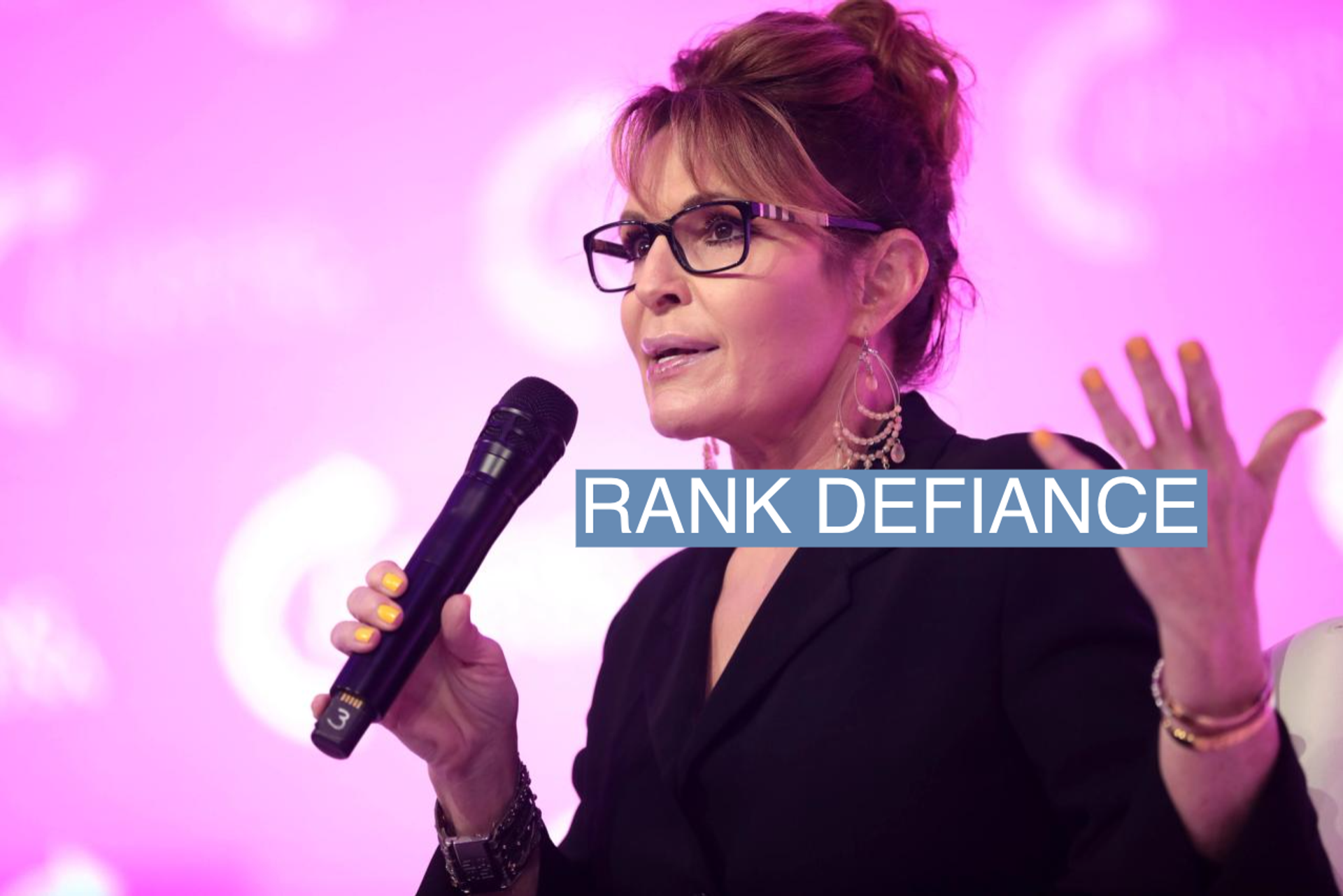The News

Photo: Flickr/Gage Skidmore
Republicans in multiple states are trying to roll back or prevent the adoption of ranked-choice voting, after Alaska’s 2022 election — the state’s first under the new system — helped a moderate Democrat and moderate Republican defeat conservatives endorsed by Donald Trump.
Alaska, which has sent just two Democrats to Washington since 1980, is one of two states with a form of ranked-choice voting in place. Maine voters passed their own version in 2016, which was upheld by a judge after a Republican congressman sued over his loss to Democratic Rep. Jared Golden. The Republican got more votes in the first round, but lost when supporters of a third party candidate made Golden their second choice.
That race, and the recent Alaska elections, were held up by advocates as proof that the system worked by elevating less-extreme and more consensus-oriented candidates. It also woke up the opposition, mostly among Republicans. Florida banned municipalities from holding ranked-choice elections last year; South Dakota has advanced legislation that would ban it there; and most GOP legislators in Arizona support a new bill that would prevent any election except one in which “the person who receives the highest number of legal votes” wins outright.
“These out-of-state outfits came up here and experimented on us,” said Art Mathias, the founder of Alaskans for Honest Elections, which will begin collecting signatures next week for a ballot measure to scrap RCV and bring back party primaries. “They’ve spent millions trying to convince us Alaskans how good the November election was and how it was great and beautiful.”
Alaska voters introduced the “top four” ranked-choice system in 2020, approving a ballot measure by a single percentage point after advocates, who said that the new system would honor the state’s “independent streak,” outspent critics 10-1.
With the reform in place, instead of seeking party nominations, candidates competed on the same ballot for one of four spots in the general election. Voters had the right to rank the final four candidates — 1, 2, 3, 4 — and tabulators would add up their second, third, and fourth choices until one candidate won a majority. Under the system, Sen. Lisa Murkowski, a moderate Republican, and Democratic Rep. Mary Peltola both won victories over hard right opponents.
Mathias and other conservatives argue that the system is too complicated, too slow — it took 15 days for Murkowski to pull ahead — and that it “disenfranchises” voters who don’t rank every candidate. After Peltola’s win, Trump called the top-four system a “rigged deal,” an attitude that’s traveled far in his party.
Former Alaska Gov. Sarah Palin, who lost last year’s special and November elections to Peltola, has endorsed the rollback campaign, and will speak at its launch on Thursday. Kelly Tshibaka, the MAGA Republican who lost to Murkowski last year, founded her own organization, Protect Democracy, to dismantle “top four” voting.
“This is a very, very dangerous move and a threat to our democracy,” Tshibaka told donors at the group’s first rally this week. “If we do not act now, the entire U.S. election system is about to change.”
Last month, Palin flew to California for the Republican National Committee’s winter meeting, where she supported a resolution to “oppose ranked choice voting in every locality and level of government.” Republicans were on record: They’d defend America’s “historic political party system” against one that its own voters didn’t trust.
“The grassroots activists of the Republican Party have made it abundantly clear that they do not trust new election procedures, outcomes, and further complications of modern systems that sow additional distrust in elections,” read the resolution, which passed unanimously. “We need to keep voting simple and secure.”
In this article:
David’s view
The best argument that ranked-choice advocates have is that their system makes it tougher for fringe candidates to win, but easier to run, since it’s impossible for their votes to “spoil” a race. Virginia Republicans learned that in 2021, holding a ranked-choice party convention that produced their first winning statewide ticket in 12 years, led by Glenn Youngkin.
But there are plenty of places where the winner of a Republican primary is a lock to win the general election anyway, and watching two MAGA candidates fall on their faces fueled a backlash that was already in progress. Ranked-choice vote counting also takes time, and conservative voters (like Trump) increasingly associate long counts with election fraud. We’re going to learn, very soon, what happens when the GOP gets more invested in stopping this.
Room for Disagreement
Rob Richie, the president of the pro-ranked-choice group FairVote, said that while grassroots conservatives were getting organized to fight them, Republicans should consider the upside of the system. The GOP is coming off a midterms in which the more traditional “first-past-the-post” primaries produced numerous candidates with limited appeal outside their base who blew winnable contests.
“They’re losing key races because they get weak, weak nominees coming out of plurality primaries,” said Richie. “That really hurt them in some places last year, and there are some top Republicans that totally get that.”
Notable
- Some conservatives have been campaigning against ranked-choice voting for years, and Hans von Spakovsky and J. Christian Adams laid out their arguments in a 2019 essay: “So-called reformers want to change process rules so they can manipulate election outcomes to obtain power.”